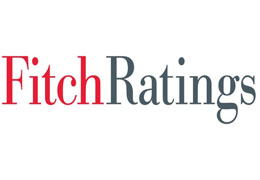ArmInfo. The Armenian banking system remains under pressure of several factors such as dollarization, lending slowdown and loss of yield, according to the opinion expressed at a financial and banking conference in Yerevan on June 9. The conference was organized by Fitch Ratings.
Olga Ignatieva, Senior Director at Fitch Ratings CIS Ltd, thinks that notwithstanding the crisis phenomena, the aggregate loan book of the Armenian banks in GDP has reached 40% and this means that the banking system of the country has a significant potential for further growth. Moreover, the stable structure of the banking system's assets can also be considered as a positive factor.
The analyst expressed hope for further economic growth in Armenia, stressing its importance for the banking system and quality of assets. She thinks one should expect no deterioration in the asset quality amid the growth. Nevertheless, she said, the external factors are still the key determinants. It is hard to say whether it would be necessary to devaluate the Armenian currency amid intensifying pressure, because the Armenian economy depends on primary commodity markets. That dependency is big enough to affect the stability of the currency and to influence the external funds of the country, Olga Ignatieva stressed.
In the meantime, she pointed out that the increase in the non-performing loans (NPLs) remains a worrisome factor. "In case the country's economy keeps growing and if the external pressure diminishes, we will expect stabilization of the loan market. As the external environment remains one of the determinants, the high level of dollarization of the banks' portfolios also affects the stability - as a matter of fact, the borrowers have no forex revenues, because the share of export is very small - only 16% of GDP. That is to say,it is not always easy to find exporters and make them borrowers. On the other hand, very often the exporters do not even need borrowed funds," the analyst said.
Jan van Bilsen, Regional Manager for the South Caucasus at IFC, said that the SME sector and the private sector in general should be considered as the key driver of development of the Armenian economy. This needs a stable banking system and financial sector. He noted
that IFC will keep providing funding to its seven partner banks and that IFC intends to increase the number of its partner banks. When speaking of possible mitigation of dollarization in Armenia, the IFC representative stressed the importance of developing the capital market in the country. He thinks it is very important for creating a strong impetus for economy development. Firstly, development of the stock market diversifies the resource base of the economy being used by the companies. Secondly, a developed market of corporate
securities in terms of national currency - with its segments of derivatives and swaps - is able to considerably level the risks, Bilsen said, stressing the need to take measures aimed at developing the infrastructure of the stock market that would ensure a comfortable and stable environment for economic entities.
Mher Abrahamyan, member of the Board of the Central Bank of Armenia, also emphasized the serious risks related to the high level of dollarization (70% of the aggregate loan book of the Armenian banks are forex loans - editor's note). It is necessary to reduce dollarization in order to ensure the stability of the banking system and to improve the entire financial system of the country. The Central Bank's policy aims to stimulate the lending in terms Armenian
dram and to make it more attractive than the forex lending. In this light, the requirements of loan loss provisions have been adjusted (20% for forex loans and 2% for AMD loans - editor's note). The CB also seeks to increase the share of AMD deposits. "We do not see any
tangible reduction in dollarization yet, but over the past year we have not seen it grow either. Moreover, it has dropped by 1-2%", Abrahamyan stressed.
To note, Fitch Ratings has been operating on the Armenian market for nearly 15 years. Now two Armenian banks - Ameriabank and Ardshinbank - are on Fitch's rating list. Both banks' ratings are B+, which is equal to that of the Sovereign, awarded by the company in 2015.
According to the Financial Rating of Armenian Banks by the Agency of Rating Marketing Information (ArmInfo), by 1 Jan 2016, the assets of the banking system totaled $7.3 bln (with the year-over-year growth slackening from 15.4% to 4.7%). The share of lending made up over 64% or $4.7 bln (the y-o-y growth slackened from 21.2% to 1.7%). In 2015, lending grew by 1.1% (versus 24.4% rise in 2014) to $3.1 bln. By 1 April 2016, the assets amounted to $7.4 bln, lending - $4.8 bln (over 65% of assets), including $3.2 in lending to economy sectors. In the aggregate loan book of the banking system the share of NPLs (including unrecoverable loans) rose by 8.5% to 12% in 2015. By 1 April 2016, the share of NPLs rose to 13.6%.


